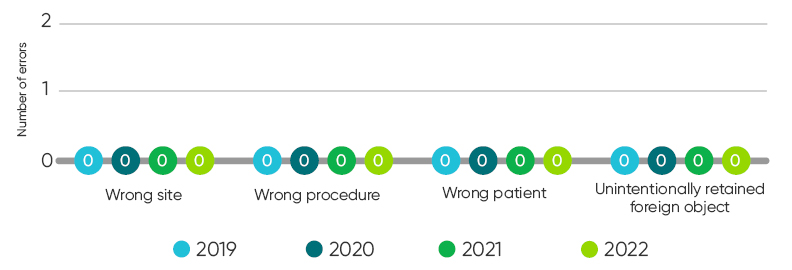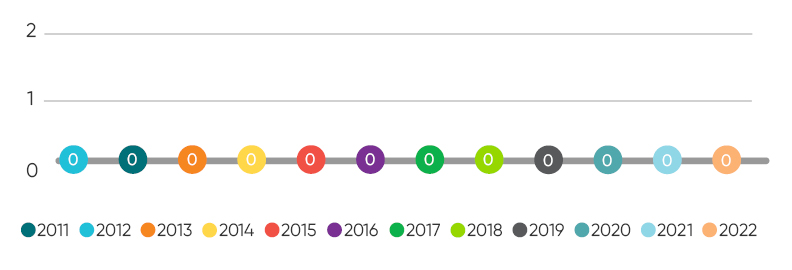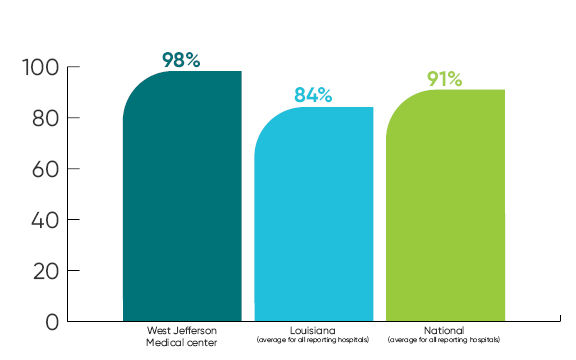Quality
Safe surgery
According to an AHRQ-supported study, wrong-site surgery occurred at a rate of approximately 1 per 113,000 operations between 1985 and 2004. In July 2004, The Joint Commission enacted a Universal Protocol that was developed through expert consensus on principles and steps for preventing wrong-site, wrong-procedure, and wrong-person surgery.
In an effort to prevent these errors from occurring in our operating rooms, West Jefferson Medical Center partnered with the Louisiana Surgical Quality Collaborative (LaSQC) in 2019 and adopted the use of the “Safe Surgery Checklist”.
"The Safe Surgery Checklist is a quality improvement initiative designed to deliver safer patient care by enhancing communication and teamwork in the operating room/procedure room. When used properly, it helps to create an environment in which people can speak up, input is solicited, and information is shared. It is not a form that has to be "checked off”, but is designed for experts by experts to provide meaningful improvements in teamwork and care. It is a structured process that creates a framework for discussing surgical plans, addressing concerns and confirming critical information at key points in the surgical workflow"(Safe Surgery Checklist Implementation Guide. Boston MA: Ariadne Labs; 2015).
Safe Surgery Checklist Outcomes

Safe Blood Administration
Blood transfusions are indicated for the patient who has hypovolemia secondary to hemorrhage, anemia or another disease process that is associated with a deficiency in terms the patient's clotting or another component of blood, for example.
Some blood transfusion reactions and blood transfusion errors occur as the result of inaccurate patient identification. Simply stated, patient misidentification can be prevented by matching the client to the order, ensuring that the blood is accurately matched to the client and the order and by using the two-person verification technique that involves two nurses checking the blood, the order and the client's identity using at least two unique identifiers.
At West Jefferson Medical Center, prior to administering blood, two nurses (one being a Registered Nurse or Advanced Practice Nurse) complete patient identification process by matching the blood or blood component to the order and matching the patient to the blood or blood component. A Physician may verify blood with a Registered Nurse.
Additionally, barcode scanning technology is used to ensure that all components match.
 Colonoscopy Follow-up
Colonoscopy Follow-up
The U.S. Preventive Services Task Force (USPSTF) recommends screening for colorectal cancer beginning at age 50. A colonoscopy is one test doctors can use to find precancerous polyps (abnormal growths) or colorectal cancer. During a colonoscopy, your doctor can remove any polyps that are found.
Individuals between the ages of 50 and 75 who are not at high risk should have a screening colonoscopy every 10 years. Regular screening colonoscopies are not recommended for most people over 75 years of age, because the benefits of having colonoscopies are small compared to the potential increase in risks. Talk to your doctor about other types of cancer screening tests that may be right for you.
West Jefferson Medical Center recognizes the importance of follow-up colorectal screening and provides our patients with this important information upon completion of your exam.
Percentage of patients receiving appropriate recommendation for follow-up screening colonoscopy

Note: This data is publicly reported on Hospital Compare at https://www.medicare.gov/hospitalcompare
Data as of 7/26/2023
